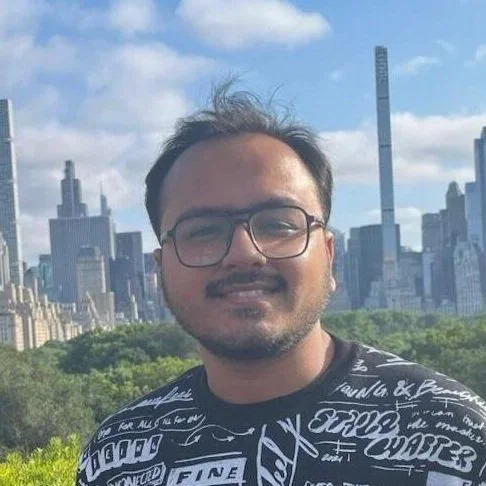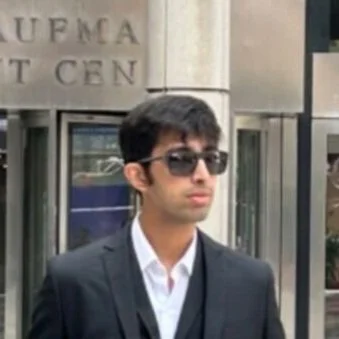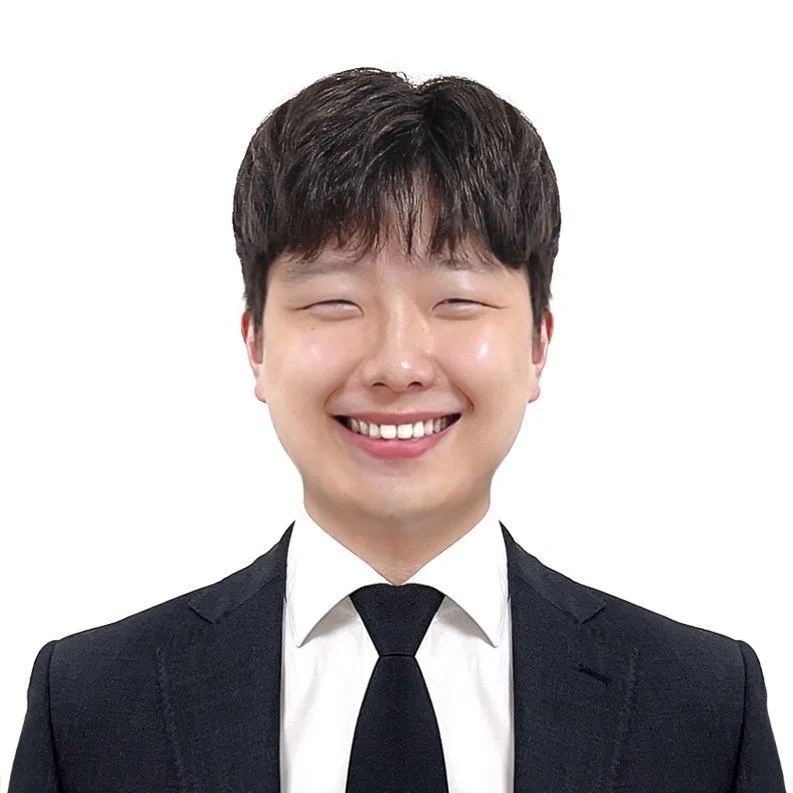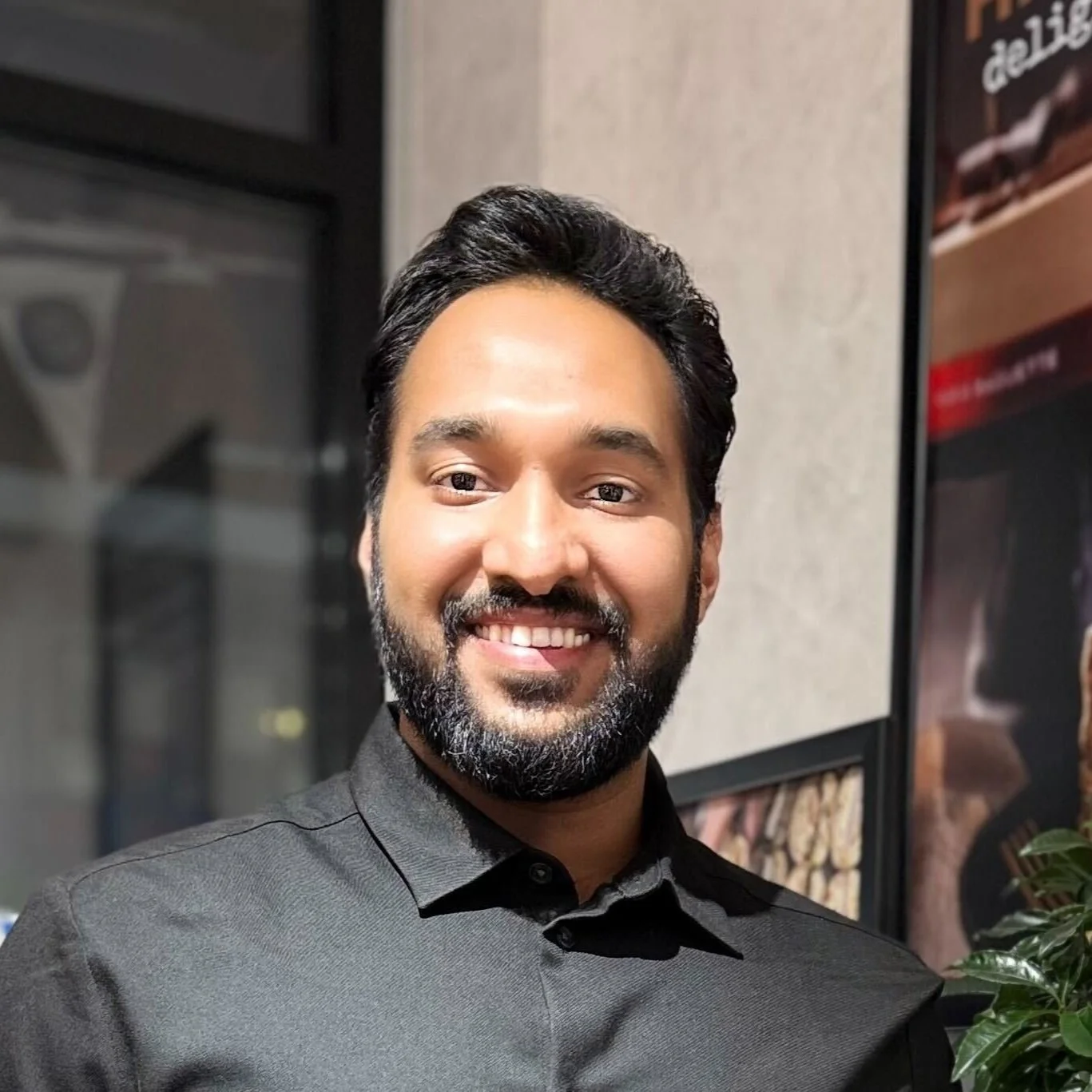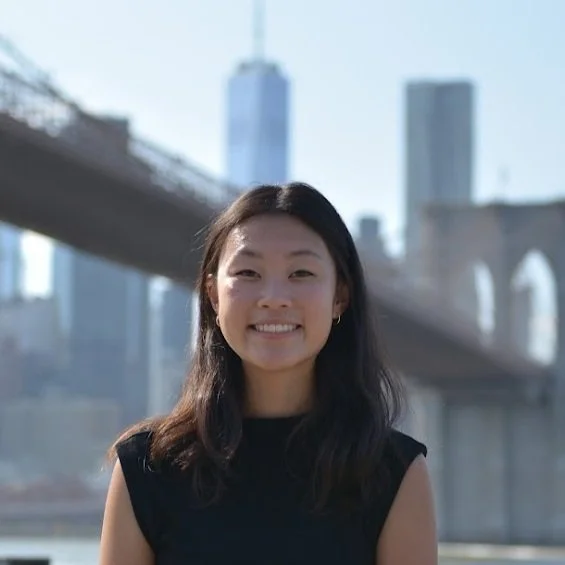Neuroinformatics lab
We develop computational models and signal processing tools to decode brain connectivity and function using genomics and imaging. We are particularly interested in constructing a bridge between genetics and behavior through interpretable models that operate on multi-modal neural data at molecular, circuit and whole-brain resolutions.
Apply for Ph.D. student and postdoctoral positions now (see below).
Erdem Varol (PI)
I’m an assistant professor at the Department of Computer Science & Engineering at Tandon School of Engineering, NYU. I’m also a part of the VIDA center. Previously, I was a postdoc at the Department of Statistics, Zuckerman Institute, Columbia University with Liam Paninski. Before that, I did my Ph.D. at the Department of Electrical & Systems Engineering at the University of Pennsylvania under Christos Davatzikos. Whilst at Penn, I also received an A.M degree in Statistics from the Wharton School. I recently received the NIH/NIMH K99/R00 award in 2022. I’m originally from Ankara, Turkey and grew up in New York City. I have two basset hounds.
Email: ev2240@nyu.edu
CV: [Link]
Google Scholar: [Link]
Twitter: [Link]
Team
Margaret Conde Paredes
(co-advised w/ Attila Losonczy)
Ph.D. student (2023 - present)
Previously @ UCL
Website: TBD
Lawrence Lu
M.S. Student (2025 - present)
Previously @ National Taipei University of Technology
Alumni
Rosanne Cui
Undegraduate Student (2024 - present)
New York University
Anusha Kumar
High School Summer Intern (2024 - present)
Horace Mann School
Publications
2025
Predicting Functional Brain Connectivity with Context-Aware Deep Neural Networks; A Ratzan, S Goel, J Wen, C Davatzikos, E Varol; Advances in Neural Information Processing Systems 39
Self supervised learning for in vivo localization of microelectrode arrays using raw local field potential; T He, M Patel, C Li, A Maslarova, M Vöröslakos, N Ramanathan, W Hung, G Buzsaki, E Varol; Advances in Neural Information Processing Systems 39
Neuroimaging endophenotypes reveal underlying mechanisms and genetic factors contributing to progression and development of four brain disorders; J Wen, I Skampardoni, YE Tian, Z Yang, Y Cui, G Erus, G Hwang, E Varol, ...; Nature Biomedical Engineering, 1-18
Alternative splicing across the C. elegans nervous system; A Weinreb, E Varol, A Barrett, RM McWhirter, SR Taylor, I Courtney, ...; Nature communications 16 (1), 4508
DREDge: robust motion correction for high-density extracellular recordings across species; C Windolf, H Yu, AC Paulk, D Meszéna, W Muñoz, J Boussard, ...; Nature methods, 1-13
Decoding neuronal wiring by joint inference of cell identity and synaptic connectivity; HP Gupta, AW Azevedo, K Xing, PA Sims, E Varol, RS Mann; bioRxiv
Integrating bulk and single cell RNA-seq refines transcriptomic profiles of individual C. elegans neurons; A Barrett, E Varol, A Weinreb, SR Taylor, RM McWhirter, C Cros, B Vidal, ...; BioRxiv, 2025.01. 26.634951
WormID-Benchmark: Extracting Whole-Brain Neural Dynamics of C. elegans At the Neuron Resolution; J Adhinarta, J Dong, T He, J Huang, D Sprague, J Wan, HJ Lee, Z Yu, ...; bioRxiv, 2025.01. 06.631621
CellSpliceNet: Interpretable Multimodal Modeling of Alternative Splicing Across Neurons in C. elegans; A Afrasiyabi, J Kovalic, C Liu, E Castro, A Weinreb, E Varol, D Miller, ...; bioRxiv, 2025.06. 22.660966
Human single neural and columnar dynamics recorded by intraoperative high-density penetrating electrodes; D Meszena, A Paulk, W Munoz, M Jamali, I Caprara, B Coughlin, ...; Neuroscience Applied 4, 105433
2024
Exploiting correlations across trials and behavioral sessions to improve neural decoding; Y Zhang, H Lyu, C Hurwitz, S Wang, C Findling, F Hubert, A Pouget, ...; bioRxiv
Genetic and clinical correlates of two neuroanatomical AI dimensions in the Alzheimer’s disease continuum; J Wen, Z Yang, IM Nasrallah, Y Cui, G Erus, D Srinivasan, A Abdulkadir, ...; Translational psychiatry 14 (1), 420
2P-NucTag: on-demand phototagging for molecular analysis of functionally identified cortical neurons; J Shi, B Nutkovich, D Kushinsky, BY Rao, SA Herrlinger, E Tsivourakis, ...; bioRxiv
Alternative splicing across theC. elegansnervous system; A Weinreb, E Varol, A Barrett, RM McWhirter, SR Taylor, I Courtney, ...
Disorganized Inhibitory Dynamics in Hippocampal area CA1 of 22q11. 2 Deletion Mutant Mice; SA Herrlinger, BY Rao, MEC Paredes, AL Tuttman, H Arain, E Varol, ...; bioRxiv, 2024.04. 28.591464
2023
Bypassing spike sorting: Density-based decoding using spike localization from dense multielectrode probes; Y Zhang, T He, J Boussard, C Windolf, O Winter, E Trautmann, N Roth, ...; Advances in Neural Information Processing Systems 36, 77604-77631; NeurIPS 2023 (Spotlight)
Modified Neuropixels probes for recording human neurophysiology in the operating room; B Coughlin, W Muñoz, Y Kfir, MJ Young, D Meszéna, M Jamali, I Caprara, ...; Nature protocols 18 (10), 2927-2953
Neuroimaging-AI Endophenotypes of Brain Diseases in the General Population: Towards a Dimensional System of Vulnerability; J Wen, I Skampardoni, YE Tian, Z Yang, Y Cui, G Erus, G Hwang, E Varol, ...; Medrxiv: the Preprint Server for Health Sciences
Learning Probabilistic Piecewise Rigid Atlases of Model Organisms via Generative Deep Networks; A Nejatbakhsh, N Dey, V Venkatachalam, E Yemini, L Paninski, E Varol; International Conference on Information Processing in Medical Imaging, 332-343; IPMI 2023. (Oral Presentation)
Multimodal microscopy image alignment using spatial and shape information and a branch-and-bound algorithm; S Chen, BY Rao, S Herrlinger, A Losonczy, L Paninski, E Varol; ICASSP 2023-2023 IEEE International Conference on Acoustics, Speech and …
Robust online multiband drift estimation in electrophysiology data; C Windolf, AC Paulk, Y Kfir, E Trautmann, D Meszéna, W Muñoz, ...; ICASSP 2023-2023 IEEE International Conference on Acoustics, Speech and …; ICASSP 2023. (Top 3% of papers)
Assessment of neuroanatomical endophenotypes of autism spectrum disorder and association with characteristics of individuals with schizophrenia and the general population; G Hwang, J Wen, S Sotardi, ES Brodkin, GB Chand, DB Dwyer, G Erus, ...; JAMA psychiatry 80 (5), 498-507
Psychosis brain subtypes validated in first-episode cohorts and related to illness remission: results from the PHENOM consortium; DB Dwyer, GB Chand, A Pigoni, A Khuntia, J Wen, M Antoniades, ...; Molecular psychiatry 28 (5), 2008-2017
Subtyping brain diseases from imaging data; J Wen, E Varol, Z Yang, G Hwang, D Dwyer, AF Kazerooni, PA Lalousis, ...; Machine Learning for Brain Disorders, 491-510
2022
Genetic, clinical underpinnings of brain change along two neuroanatomical dimensions of clinically-defined Alzheimer’s disease; J Wen, Z Yang, IM Nasrallah, Y Cui, G Erus, D Srinivasan, A Abdulkadir, ...
Genetic, clinical underpinnings of subtle early brain change along Alzheimer’s dimensions; J Wen, Z Yang, IM Nasrallah, Y Cui, G Erus, D Srinivasan, A Abdulkadir, ...; bioRxiv, 2022.09. 16.508329
Schizophrenia imaging signatures and their associations with cognition, psychopathology, and genetics in the general population; GB Chand, P Singhal, DB Dwyer, J Wen, G Erus, J Doshi, D Srinivasan, ...; American Journal of Psychiatry 179 (9), 650-660
Three imaging endophenotypes characterize neuroanatomical heterogeneity of autism spectrum disorder; G Hwang, J Wen, S Sotardi, ES Brodkin, GB Chand, DB Dwyer, G Erus, ...; medRxiv, 2022.06. 17.22276543
P580. Two Schizophrenia Neuroanatomical Signatures From the PHENOM Consortium and Their Association With Psychopathology, Cognition, and Genetics in the Population-Level Samples; G Chand, P Singhal, DB Dwyer, J Wen, G Erus, E Varol, G Hwang, ...; Biological Psychiatry 91 (9), S323-S324
Characterizing heterogeneity in neuroimaging, cognition, clinical symptoms, and genetics among patients with late-life depression; J Wen, CHY Fu, D Tosun, Y Veturi, Z Yang, A Abdulkadir, E Mamourian, ...; JAMA psychiatry 79 (5), 464-474
Two schizophrenia imaging signatures and their associations with cognition, psychopathology, and genetics in the general population; GB Chand, P Singhal, DB Dwyer, J Wen, G Erus, J Doshi, D Srinivasan, ...; medRxiv, 2022.01. 07.22268854
CeNGEN Integrated mRNA data and bulk noncoding RNA lookup table; A Barrett, E Varol, A Weinreb, SR Taylor, R McWhirter, C Cros, ...
Multi-scale semi-supervised clustering of brain images: deriving disease subtypes; J Wen, E Varol, A Sotiras, Z Yang, GB Chand, G Erus, H Shou, ...; Medical Image Analysis 75, 102304
2021
Three-dimensional spike localization and improved motion correction for Neuropixels recordings; J Boussard, E Varol, HD Lee, N Dethe, L Paninski; Advances in Neural Information Processing Systems 34
Non-parametric vignetting correction for sparse spatial transcriptomics images; BY Rao, AM Peterson, EK Kandror, S Herrlinger, A Losonczy, L Paninski, ...; International Conference on Medical Image Computing and Computer-Assisted …
Visualizing the organization and differentiation of the male-specific nervous system of C. elegans; T Tekieli, E Yemini, A Nejatbakhsh, C Wang, E Varol, RW Fernandez, ...; Development 148 (18), dev199687
Molecular topography of an entire nervous system; SR Taylor, G Santpere, A Weinreb, A Barrett, MB Reilly, C Xu, E Varol, ...; Cell
The Prop1-like homeobox gene unc-42 specifies the identity of synaptically connected neurons; EG Berghoff, L Glenwinkel, A Bhattacharya, HS Sun, E Varol, ...; Elife 10, e64903
Decentralized Motion Inference and Registration of Neuropixel Data; E Varol, J Boussard, N Dethe, O Winter, A Urai, TIB Laboratory, ...; ICASSP 2021-2021 IEEE International Conference on Acoustics, Speech and …
Three Distinct Neuroanatomical Subtypes of Autism Spectrum Disorder, Revealed via Machine Learning, and Their Similarities With Schizophrenia Subtypes; G Hwang, ES Brodkin, GB Chand, DB Dwyer, J Wen, G Erus, J Doshi, ...; Biological Psychiatry 89 (9), S374-S375
Neurocognitive and functional heterogeneity in depressed youth; EB Baller, AN Kaczkurkin, A Sotiras, A Adebimpe, DS Bassett, ME Calkins, ...; Neuropsychopharmacology 46 (4), 783-790
NeuroPAL Microfluidic Chip Images, GCaMP, and dNMF Neuronal Activity; E Yemini, O Hobert, A Nejatbakhsh, E Varol, L Paninski, ...; (No Title)
Interaction of the Joining Region in Junctophilin-2 With the L-Type Ca2+ Channel Is Pivotal for Cardiac Dyad Assembly and Intracellular Ca2+ Dynamics; P Gross, J Johnson, CM Romero, DM Eaton, C Poulet, J Sanchez-Alonso, ...; Circulation research 128 (1), 92-114
NeuroPAL: a multicolor atlas for Whole-Brain neuronal identification in C. elegans; E Yemini, A Lin, A Nejatbakhsh, E Varol, R Sun, GE Mena, ADT Samuel, ...; Cell 184 (1), 272-288. e11
Neuron matching in C. elegans with robust approximate linear regression without correspondence; A Nejatbakhsh, E Varol; Proceedings of the IEEE/CVF Winter Conference on Applications of Computer …
2020
Statistical Atlas of C. elegans Neurons; E Varol, A Nejatbakhsh, R Sun, G Mena, E Yemini, O Hobert, L Paninski; International Conference on Medical Image Computing and Computer-Assisted …
Demixing Calcium Imaging Data in C. elegans via Deformable Non-negative Matrix Factorization; A Nejatbakhsh, E Varol, E Yemini, V Venkatachalam, A Lin, ADT Samuel, ...; International Conference on Medical Image Computing and Computer-Assisted …
Probabilistic Joint Segmentation and Labeling of C. elegans Neurons; A Nejatbakhsh, E Varol, E Yemini, O Hobert, L Paninski; International conference on medical image computing and computer-assisted …
MAGIC: Multi-scale heterogeneity analysis and clustering for brain diseases; J Wen, E Varol, G Chand, A Sotiras, C Davatzikos; International Conference on Medical Image Computing and Computer-Assisted …
Unique homeobox codes delineate all the neuron classes of C. elegans; MB Reilly, C Cros, E Varol, E Yemini, O Hobert; Nature 584 (7822), 595-601
Extracting neural signals from semi-immobilized animals with deformable non-negative matrix factorization; A Nejatbakhsh, E Varol, E Yemini, V Venkatachalam, A Lin, ADT Samuel, ...; bioRxiv, 2020.07. 07.192120
Sinkhorn em: an expectation-maximization algorithm based on entropic optimal transport; G Mena, A Nejatbakhsh, E Varol, J Niles-Weed; arXiv preprint arXiv:2006.16548
NeuroPAL Data; E Yemini, A Lin, A Nejatbakhsh, E Varol, R Sun, G Mena, A Samuel, ...; (No Title)
Neurostructural Heterogeneity in Youth With Internalizing Symptoms; A Kaczkurkin, A Sotiras, E Baller, R Barzilay, ME Calkins, G Chand, Z Cui, ...; Biological Psychiatry 87 (9), S28
Two Neuroanatomical Subtypes of Schizophrenia Defined by Multi-Site Machine Learning; D Wolf, G Chand, D Dwyer, G Erus, A Sotiras, E Varol, D Srinivasan, ...; Biological Psychiatry 87 (9), S28-S29
Neuroanatomical Dimensional Phenotypes of Schizophrenia: Expression in Youth With Psychosis-Spectrum Symptoms and Correlation With Cognition; G Chand, DH Wolf, G Erus, D Srinivasan, DB Dwyer, R Pomponio, ...; Biological Psychiatry 87 (9), S119
Two distinct neuroanatomical subtypes of schizophrenia revealed using machine learning; GB Chand, DB Dwyer, G Erus, A Sotiras, E Varol, D Srinivasan, J Doshi, ...; Brain 143 (3), 1027-1038
Neurostructural heterogeneity in youths with internalizing symptoms; AN Kaczkurkin, A Sotiras, EB Baller, R Barzilay, ME Calkins, GB Chand, ...; Biological psychiatry 87 (5), 473-482
A multidimensional neural maturation index reveals reproducible developmental patterns in children and adolescents; M Truelove-Hill, G Erus, V Bashyam, E Varol, C Sako, RC Gur, RE Gur, ...; Journal of Neuroscience 40 (6), 1265-1275
Sinkhorn permutation variational marginal inference; G Mena, E Varol, A Nejatbakhsh, E Yemini, L Paninski; Symposium on advances in approximate Bayesian inference, 1-9
NeuroPAL: a neuronal polychromatic atlas of landmarks for whole-brain imaging in C. elegans; E Yemini, A Lin, A Nejatbakhsh, E Varol, R Sun, GE Mena, ADT Samuel, ...; BioRxiv, 676312
2019
Temporal Wasserstein non-negative matrix factorization for non-rigid motion segmentation and spatiotemporal deconvolution; E Varol, A Nejatbakhsh, C McGrory; arXiv preprint arXiv:1912.03463
Neurocognitive and functional heterogeneity in depressed youth; EB Baller, AN Kaczkurkin, A Sotiras, A Adebimpe, DS Bassett, ME Calkins, ...; bioRxiv, 778878
T195. Neuroanatomical heterogeneity of schizophrenia quantified via semi-supervised machine learning reveals two distinct subtypes: Results from the PHENOM consortium; GB Chand, DB Dwyer, G Erus, A Sotiras, E Varol, D Srinivasan, RC Gur, ...; Biological Psychiatry 85 (10), S205-S206
Expression profiling of the mature C. elegans Nervous system by single-Cell RNA-sequencing. bioRxiv: 737577; SR Taylor, G Santpere, M Reilly, L Glenwinkel, A Poff, R McWhirter, C Xu, ...; Publisher: Cold Spring Harbor Laboratory Section: New Results
2018
Semi-Supervised Machine Learning Reveals 3 Patterns of Cognitive Function in Depressed Youth; E Baller, A Kaczkurkin, A Sotiras, E Varol, T Moore, C Xia, M Calkins, ...; NEUROPSYCHOPHARMACOLOGY 43, S443-S444
Generative discriminative models for multivariate inference and statistical mapping in medical imaging; E Varol, A Sotiras, K Zeng, C Davatzikos; International Conference on Medical Image Computing and Computer-Assisted …
MIDAS: Regionally linear multivariate discriminative statistical mapping; E Varol, A Sotiras, C Davatzikos; NeuroImage 174, 111-126
Regionally discriminative multivariate statistical mapping; E Varol, A Sotiras, C Davatzikos; 2018 IEEE 15th International Symposium on Biomedical Imaging (ISBI 2018 …
Advancing Statistical Inference For Population Studies In Neuroimaging Using Machine Learning; E Varol; University of Pennsylvania
2017
Heterogeneity of neuroanatomical patterns in prodromal Alzheimer’s disease: links to cognition, progression and biomarkers; A Dong, JB Toledo, N Honnorat, J Doshi, E Varol, A Sotiras, D Wolk, ...; Brain 140 (3), 735-747
HYDRA: Revealing heterogeneity of imaging and genetic patterns through a multiple max-margin discriminative analysis framework; E Varol, A Sotiras, C Davatzikos, ADN Initiative; Neuroimage 145, 346-364
2016 & Older
Structured outlier detection in neuroimaging studies with minimal convex polytopes; E Varol, A Sotiras, C Davatzikos; International Conference on Medical Image Computing and Computer-Assisted …
Automated Characterization and Quantification of Cardiomyocyte Proliferation and Apoptosis in Post Myocardial Infarction Tissue Images; P Gross, N Honnorat, E Varol, M Wallner, D Trappanese, T Sharp, ...; Circulation Research 119 (suppl_1), A28-A28
Crowdsourced estimation of cognitive decline and resilience in Alzheimer's disease; GI Allen, N Amoroso, C Anghel, V Balagurusamy, CJ Bare, D Beaton, ...; Alzheimer's & Dementia 12 (6), 645-653
Nuquantus: Machine learning software for the characterization and quantification of cell nuclei in complex immunofluorescent tissue images; P Gross, N Honnorat, E Varol, M Wallner, DM Trappanese, TE Sharp, ...; Scientific reports 6 (1), 23431
Heterogeneity of neuroanatomical patterns in prodromal Alzheimer’s disease: links to cognition, progression and biomarkers. ; A Dong, JB Toledo, N Honnorat, J Doshi, E Varol, A Sotiras, D Wolk, ...
Machine learning as a means toward precision diagnostics and prognostics; A Sotiras, B Gaonkar, H Eavani, N Honnorat, E Varol, A Dong, ...; Machine learning and medical imaging, 299-334
Disentangling disease heterogeneity with max-margin multiple hyperplane classifier; E Varol, A Sotiras, C Davatzikos; International Conference on Medical Image Computing and Computer-Assisted …
Supervised block sparse dictionary learning for simultaneous clustering and classification in computational anatomy; E Varol, C Davatzikos; International Conference on Medical Image Computing and Computer-Assisted …
Classifying medical images using morphological appearance manifolds; E Varol, B Gaonkar, C Davatzikos; 2013 IEEE 10th International Symposium on Biomedical Imaging, 744-747
Feature ranking based nested support vector machine ensemble for medical image classification; E Varol, B Gaonkar, G Erus, R Schultz, C Davatzikos; 2012 9th IEEE international symposium on biomedical imaging (ISBI), 146-149
Neuroanatomical Pattern Classification in Unmedicated First-Episode Psychosis: Influence of Different Imaging Feature Selection; MH Serpa, MV Zanetti, E Varol, TM Chaim, B Gaonkar, J Doshi, MT BILT, ...; ELSEVIER SCIENCE INC
High-Dimensional Pattern Classification of Brain Morphometric and DTI Data of Adult ADHD; TM Chaim, MA Silva, E Varol, J Doshi, MV Zanetti, B Gaonkar, M Serpa, ...; ELSEVIER SCIENCE INC
Funding sources
K99/R00 Award: Transcriptional basis of neural architectures (1K99MH128772-01A1) (2022-2027)
Job openings
Ph.D. student openings
Requirements: Qualified Ph.D. student candidates should have strong computational skills and a Bachelor of Science degree (or equivalent) from backgrounds such as computer science, electrical engineering, statistics and biomedical engineering as well as an interest in applied neuroscience problems.
Application process: Applications will need to be submitted to NYU Computer Science Ph.D. program online portal, denoting the preference to work with Dr. Varol’s group. For 2025, the Ph.D. program application deadline for Fall matriculation is Dec. 12.
Postdoctoral fellow openings
Joint NYU/UTSW Computational Systems Neuroscience Postdoctoral Research Scientist position (Posted December 1 2025)
Other research openings
Review our website and indicate research interest via the below form and we will get in touch. Must be a current NYU student.












